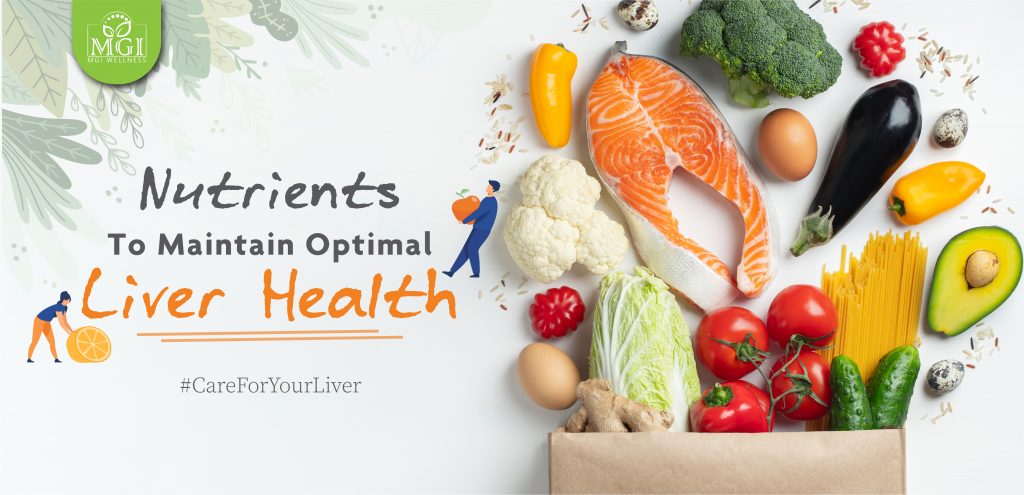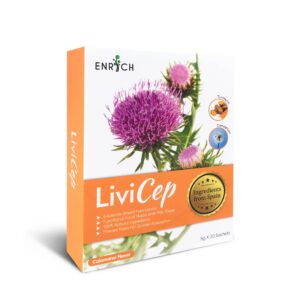Wellness
Nutrients To Maintain Optimal Liver Health
Do you realize that your liver is depending on you?
The liver is a powerhouse of an organ. Your liver is working hard, doing it best to process what you eat and drink into energy and nutrients, breaks down toxins like alcohol, medications, and natural byproducts of metabolism and acts as a filter to remove harmful substances from your blood.
If you eat a healthy diet, your liver “tells” you that you are doing a good job. You get the message because your liver is able to function properly and provided your overall health is good, you feel in great physical shape. In contrast, if you do not care about your diet by consuming fatty or fried food and alcohol, your liver is defenseless and literally is under attack.
How can I improve my liver function?
You might start to wonder, what foods are good for liver health? Are there nutrients you can take daily to help your liver cleanse and repair?
The good news is there are several different nutrients to help your liver function efficiently.
- Vitamin E
This powerful antioxidant is a fat-soluble vitamin that the liver seems to do very well with. Vitamin E helped to down-regulate genes involved with oxidative stress and cholesterol production. Lowering both factors will aid you in liver repair and liver detox.
Research showed that vitamin E may significantly improve liver function by concluded that the liver enzymes (AST, ALT, ALP) and inflammation that is produced when the liver is under stress can be reduced when vitamin E is taken.(1)
In addition, a 2014 study revealed that patients who received vitamin E (400IU/800IU per day) over a period of 96 weeks experienced reduced inflammation and fat content in the liver, as well as decreased liver cell death.(2)
Vitamin E food sources include sunflower seeds, almonds, avocados, spinach, leafy greens, papaya, kiwi, and broccoli.
- Vitamin C
Vitamin C is also an antioxidant that helps to neutralize other molecules called free radicals. Not enough antioxidants create an imbalance called oxidative stress, which can harm cells and cause liver diseases. In addition, the study stated that vitamin C helps to prevent fat accumulation in the liver, which can lead to fatty liver disease.(3)
Vitamin C food sources include guavas, strawberries, oranges, tomato, broccoli, kale, pineapple, lemon, and cauliflower.
- B-Complex Vitamins
Eating enough foods with B vitamins can help prevent infection and reverse many symptoms of liver disease in its early stages. It can also improve the nutritional deficiencies that often develop when you have liver disease.
In fact, liver disease can cause vitamin B1, B6 and B12 deficiencies. For example, severe vitamin B1 deficiency can cause a decline in mental abilities, a vitamin B6 deficiency can cause numbness and tingling from nerve damage while a vitamin B12 deficiency can cause anemia. About 90% of vitamin B12 is stored in the liver. When the liver becomes damaged, the levels of vitamin B12 decrease.
B-Complex Vitaminsfood sources include oats, spinach, beans, nuts, fish, chicken, eggs and dairy, sweet potatoes and soy milk.
- Vitamin D
The “sunshine” vitamin actually does a lot more for you than you think. Sufficient vitamin D levels are vital to have a healthy liver. A lack of vitamin D seems to exaggerate liver inflammation and inhibit bile production while increasing vitamin D can help decrease the inflammation. New evidence suggests that low serum Vitamin D may cause nonalcoholic fatty liver disease.(4) Meanwhile, another study stated that higher vitamin D levels seem to help inhibit the virus in Hepatitis from replicating so quickly, reducing the viral load the liver has to contend with.(5)
Vitamin D food sources include fatty fish, eggs, mushrooms, cheese, and cod liver oil.
- Zinc
The liver is the organ in charge of zinc metabolism and zinc is necessary for proper liver function. A deficiency in zinc can lead to problems in the liver like poor liver regeneration and liver lesion. Moreover, the study concluded that zinc may be vital in preventing liver cirrhosis. (6)
Zinc food sources include chickpeas, pumpkin seeds, hemp seeds, sesame seeds, almonds, cashews, dairy, eggs, dark chocolate meat and shellfish.
- Coenzyme Q10 (CoQ10)
CoQ10 may be crucial to aiding your liver to adapt to stress and stay healthy.CoQ10 may help the liver to adapt under the stress of metabolic processes. We are continually exposed to substances that our liver has to neutralize. CoQ10 may help aid in the liver detox process. It may also considerably lower inflammatory liver enzymes and c-reactive protein.
CoQ10 food sources include: spinach, cauliflower, broccoli, strawberries, oranges, peanuts, sesame seeds, and pistachios, fatty fish, meat
Keep in mind that if you do not help your liver, it cannot help you and eventually lead to poor liver health and liver diseases. In conclusion, it is important to eat a healthy diet, exercise regularly and maintain a healthy weight.
References:
- Ken Sato et al. Vitamin E has a beneficial effect on nonalcoholic fatty liver disease: A meta-analysis of randomized controlled trials. Nutrition. Volume 31, Issues 7–8, July–August 2015.
- Sanyal AJ, Mofrad PS, Contos MJ, et al. A pilot study of vitamin E versus vitamin E and pioglitazone for the treatment of nonalcoholic steatohepatitis. Clin Gastroenterol Hepatol. 2004 Dec;2(12):1107-15.
- Dana et al. Dietary vitamin E and C intake is inversely associated with the severity of nonalcoholic fatty liver disease. Liver, Pancreas and Biliary Tract. 2019. Volume 51, Issue 12, P1698-1705.
- Mitra Hariri et al. Effect of Vitamin D on Non-Alcoholic Fatty Liver Disease: A Systematic Review of Randomized Controlled Clinical Trials. Int J Prev Med.2019; 10: 14.
- Jeremy et al. Vitamin D and the Liver—Correlation or Cause?2018 Apr; 10(4): 496.
- Kurt et al. The role of zinc in liver cirrhosis. Ann Hepatol. Jan-Feb 2016;15(1):7-16.
Health Food



Very Good. I like your blog. Your blog got me to learn a lot. Thanks for sharing such a nice article. I wish to see much more like this and check out this article as well Can Serum Zinc Levels Predict Covid-19 Severity?
Glad to be one of many visitants on this amazing website : D.